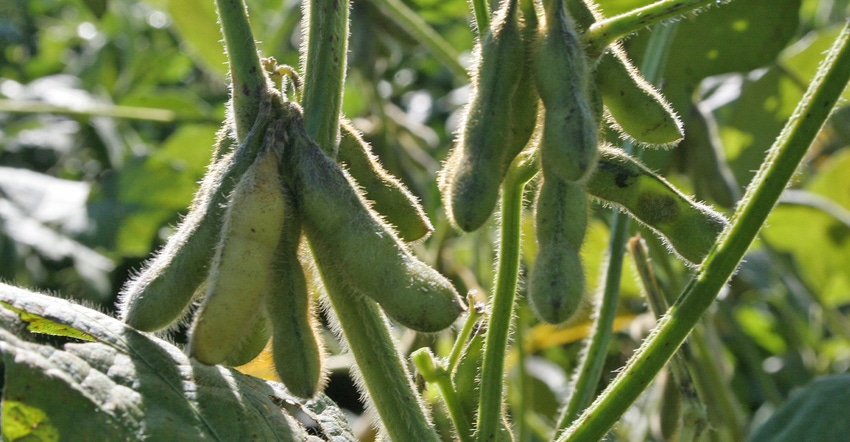September 17, 2019

New research has been published regarding neonicotinoid seed treatments, revealing that this soybean treatment provides negligible benefit to farmers. In recent years, the use of NST has increased, and it is estimated that about 50% of U.S. soybean planted acreage is treated with this class of insecticide seed treatment.
It appears that many soybean growers have been using NST on soybean seeds as a preventative measure, using it as insurance, or a just-in-case treatment. The latest research suggests this is not a best management practice and is unnecessary in many cases. It is recommended to use NST only on fields that have a specific pest history or where treatments have shown a direct positive regional impact to the crop.
Shawn Conley, professor and Extension soybean specialist in the Department of Agronomy at the University of Wisconsin-Madison is project leader and has been a longtime proponent of soybean seed treatments in Wisconsin.
“I went into the project assuming this practice would have greater national effects; however, the data speaks for itself,” Conley says. “There are many agronomic factors such as early planting, narrow row spacing and seeding rate that farmers can implement that would play a greater role than neonicotinoids in maximizing economic yield.”
Christian Krupke, professor of entomology at Purdue University and a contributor on this research, shares additional insight.
“Previously published studies have shown that the yield impacts of NST on crop productivity, including soybeans, were inconsistent at best,” he says. “In our analysis of a large, 14-state dataset that represents the vast majority of soybean acreage in the United States, we show that benefits to yield are minor, if any. Put another way, no significant insect pressure means no benefits from insecticides are possible.
“Furthermore, the nontarget impacts of the neonicotinoids used as seed treatments have been documented in dozens of studies by scientists all over the world. These impacts affect a wide range of organisms ranging from pollinators like honeybees to aquatic insects and the birds that depend on them for food. But even if we ignore that, farmers are simply wasting money on an approach that rarely pays for itself. When commodity prices are poor and the future looks murky, this is even more relevant, and our work highlights an input cost that most soybean farmers can readily do without.”
Stay up to date with the latest research at coolbean.info.
Source: UW-Madison College of Agricultural and Life Sciences, which is solely responsible for the information provided and is wholly owned by the source. Informa Business Media and all its subsidiaries are not responsible for any of the content contained in this information asset.
You May Also Like




